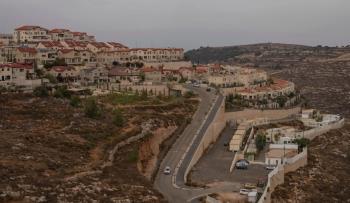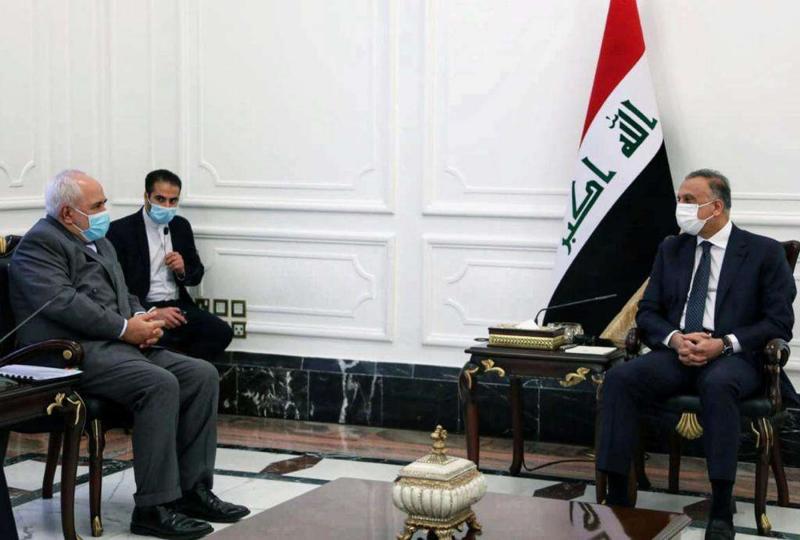Alwaght- In the middle of the Vienna nuclear talks between Iran and the world powers on the terms of the US return to the 2015 deal, Tehran regional diplomacy dynamics are actively working. Bearing witness to this is the regional tour of the Iranian Foreign Minister Mohamad Javad Zarif that took him to Qatar and Iraq. While Doha trip was important, the most significant part of the tour was Baghdad.
Iraq in the center of regional and supra-regional competition
Due to its geopolitical and special position in the Arab world, Iraq has long been considered as a focal point for diplomacy and the concentration of various actors at the regional and supra-regional levels. This position relatively saw a downturn after 2003 and the occupation by the US. In recent years, however, the country once again became the center of focus of regional and supra-regional actors. Meanwhile, in recent years, one of the serious efforts of the Arab countries led by Saudi Arabia has been to return Iraq to the circle of the Arab countries and subsequently move Baghdad away from the growing proximity to Iran. In particular, this tendency grew considerably especially after Mustafa al-Kadhimi became Prime Minister on May 7, 2020. Over the past months, diplomatic visits between Baghdad and Riyadh and other countries saw an upsurge.
One of the most important trips of Arab officials to Iraq was by Nayef Fallah Al-Hajraf, the chief of the (Persian) Gulf Cooperation Council, on February 1, 2021, and the plan to connect Iraq to the Persian Gulf Arab power grid network. Also Arab League chief Ahmad Abu Al-Gheit visited Iraq on April 10 for two-day negotiations.
Along with the Arab states, the US has made extensive efforts in recent years to create the necessary conditions for its troops to remain in Iraq, running counter to the Iraqi parliament's January 5, 2020 expulsion of foreign troops bill. In addition, Washington, along with Arab countries, pursued a policy to distance Baghdad from Tehran, an ally that stood with the Iraqis in their hardships especially when ISIS emerged in their country and the Americans refused to help in early stages of anti-terror war in violation of a 2008 security pact with Iraq.
Given this level of pressure on Baghdad and such policies by the anti-Iranian camp, Zarif's visit to Baghdad in the current context is expressive of Tehran's focus on deepening good relations with Iraq in the new conditions. The coordination and standing of these two nations together in the fight against the ISIS terrorist group after 2014 inject new reasons into their strategic alliance and further closeness.
Baghdad mediation among regional powers
Another important issue regarding Zarif's visit to Baghdad is the possibility of Iraqi mediation between Iran and Arab countries. Last week, news broke about a meeting between representatives of Iran and Saudi Arabia in Baghdad. Although the news has not yet been confirmed by Tehran and Riyadh, Iraqi politicians have announced their readiness to play a mediatory role.
Even after the meeting news circulated, Iraqi officials announced their readiness for facilitation of Iran-Egypt dialogue after four decades of diplomatic hiatus. Zarif's Baghdad visit, thus, expresses the Iranian disposition for de-escalation with regional neighbors in which Iraq can play a big role.
Iraq is now facing a mountain of economic, political, and security problems, with the regional rivalry's role in intensification of this situation certain. After Shiite power gain in post-Saddam Iraq, the Persian Gulf Arab monarchies as a Sunni bloc went to great lengths to spur political crises, fuel sectarian conflict, and sponsor terrorism in Iraq for the final goal of countering Tehran-Baghdad alliance. So, distancing Iraq from the regional tensions has now become a key principle in Baghdad’s foreign policy.
Apparently, Zarif talks with Iraqi officials on hearing the Saudi expectations and conveying the terms for advancing the Iranian-Saudi dialogue and Tehran's positions were the drivers of the visit. The Islamic Republic is for the Iraqi role in this case.
Active Iranian diplomacy for post-sanctions era
Yet from another angle, the Iranian FM's visit should be linked to the underway Vienna talks and the possibility of lifting the US unilateral sanctions on Tehran. More clearly, Iran is from now trying to prepare the ground for uptick in the economic relations with other countries, among them Iraq. The Iranian-Iraqi trade capacities are of special significance, especially as the two sides are set to realize an agreement allowing their trade volume to surge to $20 billion annually.
Overall, Iran and Iraq have a unique trade capacity for post-sanctions, US withdrawal, and coronavirus era. Zarif's visit can be extremely effective in removal of the obstacles ahead of religious and health tourism, among others, for post-coronavirus era.



























